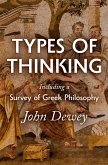First published in 1907, "Pragmatism", a philosophical work by American philosopher William James, is an exploration of what is known as the pragmatic method, designed as a way to reconcile the claims of science with those of religion and morality. Pragmatism as a philosophy considers different philosophies most useful in terms of how they are implemented. Ultimately, James argues that any idea, be it philosophical, political, social, or otherwise, is valid only in terms of its experiential and practical consequences. The primary themes of Pragmatism are of truth, meaning, and reality, and the value they have when implemented. James explores the consequences of these differing philosophies when implemented, whether they can help people make better sense of the world and resolve the problems faced as both individuals and a larger society. "Pragmatism" is considered one of the most influential works of pragmatist philosophy.Two years later, a follow-up work, "The Meaning of Truth: A Sequel to Pragmatism" appeared. It is still widely read and analysed today by students of philosophy.
Dieser Download kann aus rechtlichen Gründen nur mit Rechnungsadresse in A, B, BG, CY, CZ, D, DK, EW, E, FIN, F, GR, HR, H, IRL, I, LT, L, LR, M, NL, PL, P, R, S, SLO, SK ausgeliefert werden.









